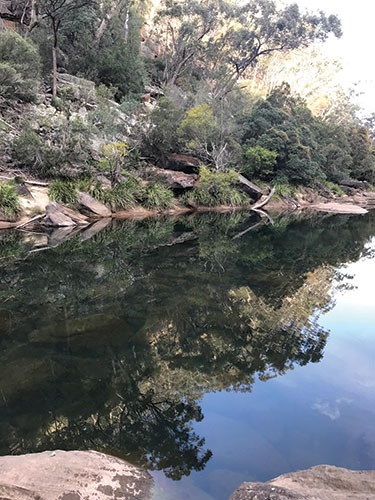Wollondilly Shire, New South Wales, contains most of Sydney’s drinking water catchment and is rich in natural heritage, including unspoiled creeks and rivers.
Future growth in the area is expected to impact the water quality and supply, as well as biodiversity and resilience to climate impacts.
Council has developed a draft Integrated Water Management Policy and Strategy to manage that impact.
Mayor, Matthew Deeth, said, “It is increasingly important to proactively manage our water sources and protect our waterways into the future to enable a more resilient community and environment within Wollondilly.
“To maintain and improve the integrity of our natural waterways, we are aiming for a zero impact on local waterways from future residential and industrial development.
“Some ideas on how to achieve this have been outlined in the draft Policy and Strategy, including using appropriately sized rainwater tanks and using stormwater to irrigate street trees.”
Future water modelling shows that stormwater runoff from urban environments is the biggest threat to natural waterways.
As well as creating more pollution, urban environments produce larger volumes of stormwater due to hard surfaces like roads and rooftops, resulting in greater erosion.
The extra pollutant load and disturbed soil from erosion also helps weeds flourish in natural environments, which diminishes the look and recreational value of waterways as well as negatively impacting native wildlife.
“It is extremely important to have an integrated approach to water management to get the best outcome for the community and environment, as the management of stormwater, wastewater and water conservation all influence each other.”
According to Professor Stuart Khan from the University of New South Wales, the security of safe drinking water is an essential part of water management.
“It should no longer be considered appropriate to use water once then discharge it into our natural waterways and the sea.
“Recycling and reusing need to play a much stronger role in future water management, as they already do in other areas of our lives.
“Long term, water recycling and reuse would enable a healthier natural environment and more resilient communities.”
As part of the public exhibition of the draft Policy and Strategy, Council is also undertaking community engagement around people’s views on reclaiming and harvesting water for treating and distributing for a range of uses across the Shire.
Schemes to harvest and use clean recycled water in agriculture and business are becoming more prevalent across New South Wales and the world.
Water supply systems using safe, purified recycled water for drinking are now becoming more mainstream across North America, Singapore, parts of Africa, Australia and Europe, with many of these schemes producing cleaner water than standard drinking water systems.








